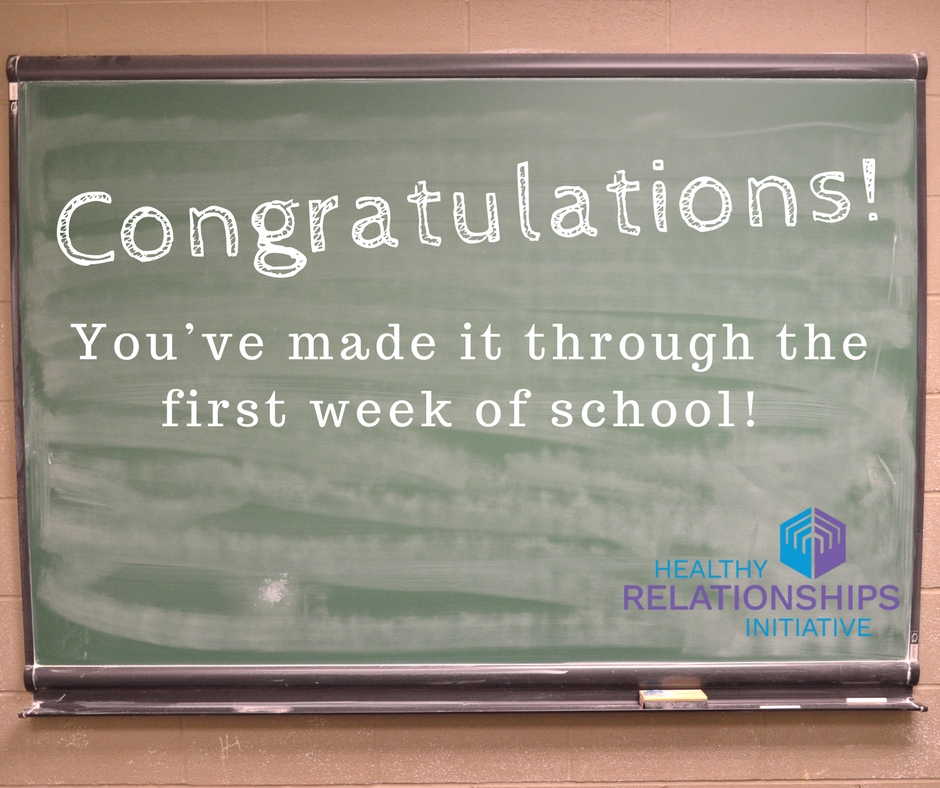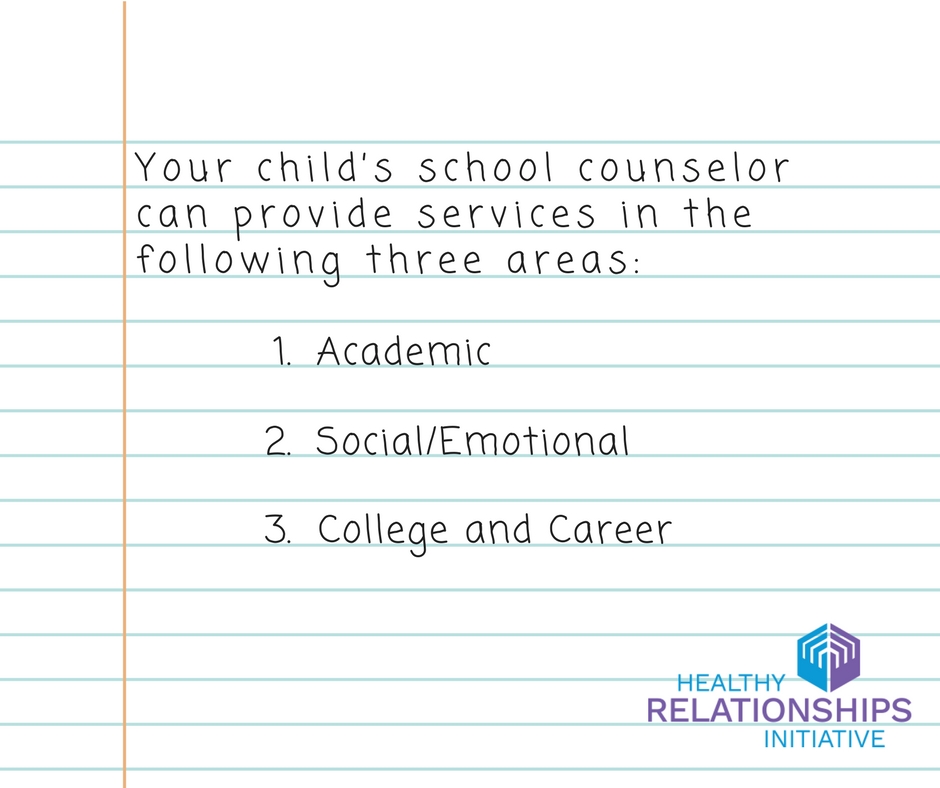
Congratulations! You’ve made it through the first week of school!
Kudos to all families in Guilford County who survived the first week of the new school year! We wish you the best as you go from *surviving* the first week to *thriving* all year!

Congratulations! You’ve made it through the first week of school!
Kudos to all families in Guilford County who survived the first week of the new school year! We wish you the best as you go from *surviving* the first week to *thriving* all year!

By Pamela Harris, HRI Guest Blogger
I totally get it. You as a parent or caregiver have a TON on your plate. Not only are you expected to make sure your child wakes up on time, eats a nutritional diet filled with more than just candy bars and chips, and help him with homework (wait—when did 4th grade math start looking like calculus?), but now I’m asking you to add one more item on your never-ending “To Do” list. You already understand the importance of meeting your kid’s teachers and the school principal, and now I’m throwing the school counselor into the mix. Right at this moment, you’re probably asking yourself: Doesn’t the school counselor just fix my child’s class schedule?
Well—WRONG.
Okay, maybe you’re a LITTLE right. But school counselors certainly offer more than just course selection. Your child’s school counselor can provide services in the following three areas:

Hopefully, you’ve been sold on the awesomeness that is your child’s school counselor. Now the question remains: how can you connect with the school counselor? Here are a few ideas:
Keep in mind that I’m merely scratching the surface. In order to truly understand how the school counselor can best help you and your child—pay them a visit! And maybe, just maybe, they can take a little off your plate.

Dr. Pamela Harris is an Assistant Professor in the UNCG Department of Counseling and Educational Development, where she trains future school counselors. To learn more about Dr. Harris, please visit http://soe.uncg.edu/directory/faculty-and-staff/bio-pamelaharris/.

By Christine Murray, HRI Director
With the start of a new school year, many parents are thinking about how to help their children succeed academically in the coming year. In addition to academics, parents are concerned about their children’s social and mental well-being. One major issue that causes parents great concern is bullying. With the increased attention to bullying in recent years, parents are well aware of the risks that can arise for children who experience bullying.
According to the US Department of Health and Human Services, bullying is defined as “unwanted, aggressive behavior among school aged children that involves a real or perceived power imbalance. The behavior is repeated, or has the potential to be repeated, over time.”
Parents play an important role in creating schools in which bullying isn’t tolerated. And yet, many parents remain uncertain as to how they can talk about this sensitive issue with their children, as well as how to work with their children’s schools to create safer schools that are free from bullying.
This school year, consider the following suggestions for how parents can help promote safety and prevent bullying in schools:
Through the Healthy Relationships Initiative, we offer a workshop for parents on bullying to local schools in Guilford County. If you are interested in learning about bringing this workshop to your school, please Contact Us for more information.

By Rossana Magalhaes, HRI Guest Blogger
You might have heard the word “mindfulness” a lot lately. Whether in articles, books, or scientific research, the benefits of mindfulness are clear. Mindfulness is paying attention, with intention, to the present moment, in a non-judgmental way (1). This applies to adults, adolescents, and even your young children. Yet, I have noticed that the work of mindfulness can seem mysterious to some of us. As back-to-school time approaches, mindfulness might be a great help to you and your children.
In my practice as a therapist I hear comments such as, “Oh no, I cannot stop my mind, it is too busy;” or “I don’t think I can sit still for hours.” This makes perfect sense! I also feel sometimes that I cannot stop my mind. As parents, I am sure it seems next to impossible to imagine getting your kids to stop for a moment and be present. Guess what? It is okay.
Yes, it is okay to intentionally practice mindfulness even with a busy mind. Mindfulness meditation is more about noticing and accepting how busy the mind is, and intentionally training the mind to pay attention to the present moment, rather than completely stopping the mind.
The ability to pay attention in the present moment is available to all of us. We may doubt it because we are not trained to notice it. So, if we consider meditation as a mind training, perhaps the resistance will be changed to curiosity, such as: “Okay, let’s be curious about how to begin training the mind.”
You might be asking, “But, why should I care? I have so many other things to do!” That is where science comes in the picture. There are many benefits that come from practicing mindfulness and mindfulness meditation, however one of the most important is brain development! Research shows that mindfulness meditation opens the possibility of growth in the gray matter of the lower brain stem. (2). The gray area is the area in the brain involved in muscle control, memory, emotions, speech, decision making, and self-regulation. This could be a great strength for our kids in both the academic world as well as in their social development.
Parents of teenagers might be interested to know that the practice of mindfulness and mindfulness meditation has been associated with improvement of the Executive Function for adolescents. The Executive Functions (EF) includes the ability to plan, remember, prioritize, pay attention, and so on. (3)
Science and scientific information might not be the most motivational factors for kids and adolescents, right? So, why not try an experiment with them before class starts in a couple of weeks. Here is an idea for a project that provides a great visual of a mindfulness practice.

Have fun connecting with your kids and teenagers.
If you are interested in further exploring mindfulness and mindfulness mediation contact me at rossana@famsolutions.org. For more information about me: http://famsolutions.org/rossana_magalhaes/.

Rossana Magalhaes, LPCA, is a counselor at Family Solutions. She can be reached at 336-899-8800, extension 25. Please visit the Family Solutions web-site at www.famsolutions.org.
(1) Definitions adapted from Jon Kabat-Ziin’s Mindfulness definition, © 1990 Jon Kabat-Zinn, Full Catastrophe Living.
(2) David R. Hamilton, PHD. Author of “I Heart Me: The Science of Self-love” and “How Your Mind Can Heal Your Body.”
(3) Riggs, N. R., Black, D. S. and Ritt-Olson, A.Riggs, N., Black, D., & Ritt-Olson, A. (2014). Associations Between Dispositional Mindfulness and Executive Function in Early Adolescence. Journal Of Child And Family Studies, 24(9), 2745-2751. doi:10.1007/s10826-014-0077-3

By Lindsay A. Whitley, Director of Guilford Parent Academy
When summer winds down and the air starts to cool off, you know it’s back-to-school time for more than 72,000 students in Guilford County Schools (GCS).
For our children, this is the season of a fresh start. It’s that exciting time when everyone is eager to learn, and we, as parents, have the perfect opportunity to support our children in school.
As a father of two, I want nothing more than for my children to be successful in school and in life. And as the director of Guilford Parent Academy (GPA), I’ve met many different parents and families across GCS. One thing I’ve learned is no two families are alike—but we all share something in common, and that is that we all care deeply about our children, and we all want our children to succeed.
However, what is the best way to help our children?
Research suggests that when parents are involved some amazing things happen – children achieve at higher levels, have higher attendance rates and do better overall in school and in life.
The bonds established between home and school can be powerful in terms of the effectiveness of any classroom. When parents become partners in the classroom, students are afforded a wealth of exciting educational possibilities.
Back-to-School Tips
As you meet your child’s new teachers and send them off on the first day of school, here are some tips to get the year off to a great start:
More About GPA
GPA provides information and training on a variety of topics for parents, grandparents and family members caring for children and young people in Guilford County. Planned by parents and a diverse team of educators and community members, GPA is designed to help parents help their children succeed.
GPA has three major components:
When parents have questions about how to help their children, GPA has answers. We are here to help our fellow parents navigate through the school-age years. We hope you will see what we have to offer and join us at an upcoming event or take advantage of our online resources.
To learn more about GPA, sign up for monthly updates or register for free classes, click here, email parentacademy@gcsnc.com or call 336-279-4924.
Lindsay A. Whitley has been the director of Guilford Parent Academy, a department of Guilford County Schools, since 2013. Prior to joining GCS, Lindsay served as the director of communications and family engagement for Montgomery County Schools in Troy, NC.

By Christine Murray, HRI Director
Did you know that the American Academy of Pediatrics recommends that families develop routines to help support children’s development? Routines are especially important for younger children, but they’re helpful for children (and adults!) of all ages because they offer a sense of predictability and stability. Although it’s important to keep some flexibility in family routines, a sense of predictability and stability provides a solid foundation on which children and teens can face new challenges and try new things.
For many families, summer is a time to loosen up routines, so the back-to-school season can feel like a shock to the system. Early morning wake-up times to get out the door on time, along with homework and extracurricular activities in the afternoons and evenings, thrust families into figuring out new routines as the school year begins. This can lead to fights and frustrations.
Getting your family back on a routine as this new school year is starting doesn’t have to lead to stress and conflict! Consider the five tips below to help ease your family’s transition into your new school year routine:
Getting back into a routine can be one of the biggest challenges that families face when a new school year begins. Take time to ease into your routines, think carefully about what you want those routines to look like, and consider how you can leave time for fun in the context of your routines. With these points in time, you’ll be back in the swing of things in no time!

By Christine Murray, HRI Director
Tomorrow, most students in Guilford County’s public schools will return to school for the new school year. Back-to-school season can bring a lot of excitement–and also a lot of stress–for students and their parents! As the slower pace of summer gives way to the busy-ness of a new school year, it’s normal for families to struggle with all the transitions that take place in a short period of time.
When children start a new grade level–and maybe even at a new school–both students and parents can feel uncertain about what to expect. There are a lot of unknowns at the start of every school year: How hard will the school work and homework be this year? What will my schedule be like? How will friendships change from last year? And, how can we balance all the demands on our time and energy this coming year?
Our HRI blog series this week will focus on ways families can work together to get this school year off to a great start. We know this is already a busy week, so we encourage you to take just a few moments of downtime each day to relax and reflect on your hopes for the year ahead. Below are a few questions you might take time to think about or discuss with your family as you ease into the new school year this week:
A thoughtful and intentional approach to beginning the school year can help you and your family get the year off to a great start. Stay tuned to HRI all week for additional resources and tips for starting strong this school year!

Today’s Find Help Friday featured community resource is the Children’s Home Society of North Carolina! You can find the Children’s Home Society online at https://www.chsnc.org/.
Here are a few of the key services provided by Children’s Home Society:
Educational Services: The educational services department helps families increase their communication and interpersonal skills to strengthen their relationships. They offer parent education and lifeskills workshops aimed at improving relationships within families.
Adoption and Foster Care Services: Children’s Home Society has a solid reputation in working with families related to adoption and foster care. They provide educational services to support permanent homes for all children, using a model that promotes the well being for the whole family.
Thanks to Children’s Home Society for your great work in building strong families and communities and helping children in our community have a safe, permanent, and loving family!


